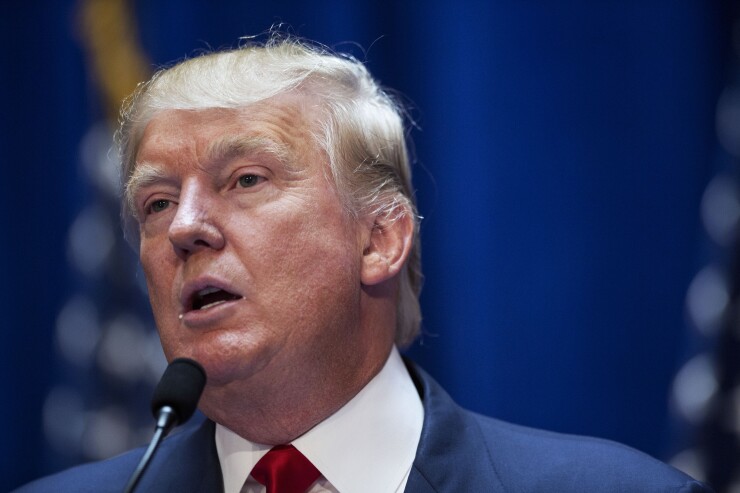If there were any doubts earlier this year that the Trump administration was about to hold companies to stricter immigration compliance, after the first 11 months of his presidency there are no questions about where immigration enforcement is heading. The United States Citizenship and Immigration Services (USCIS) is actively working to reinforce the president’s “Buy American, Hire American” directive.
Here are three areas of immigration compliance for companies, HR professionals and in-house counsel to consider:
Ending DACA
On Sept. 5, 2017, Attorney General Jeff Sessions announced that the Department of Homeland Security (DHS) will end the DACA program in six months. The DACA program allows people who arrived in the U.S. as undocumented immigrant children to avoid deportation and to obtain two-year renewable work authorization cards. Ending DACA means that recipients with current work authorization will remain authorized to work only until the expiration date on their employment authorization document.

Employers should be prepared for their employees to lose their work permits, if they were granted under the DACA program. However, employers should normally not ask to self-identify, as DACA recipients do not have an obligation to inform their employers whether they are under the DACA program.
Instead, employers have a responsibility to re-verify the Form I-9 when any individual’s work permit expires if the employee presented that document when he or she originally completed the Form I-9 upon hire. So employers should rather rely on the I-9 expiration date to address the length of work authorization rather than on the announcement about DACA termination.
Tightening of work visas
The New York Times article headline last month said it all: “Is Anyone Good Enough for an H-1B Visa?”
The work visa tightening is coming from a move by the Trump administration that will raise the bar for H-1B visa holders in the United States seeking to renew their work authorization. Also impacted by the directive announced last month is the L1 visa, which is popular among foreign IT professionals.
Until now, immigration officials considering a visa extension have deferred to prior eligibility decisions for that applicant’s visa. In other words, if someone was found eligible for an H1-B in the past, a deference was given to that prior decision on a renewal application. But in a memo released in October 2017, USCIS discarded that policy and instead ordered its officers to apply the same level of scrutiny to an extension request as they had to the initial application, consistent with policies “that protect the interests of U.S. workers.”
In view of those developments, employers who rely on foreign nationals for key positions must gauge their future hiring needs and should schedule periodic immigration assessments of the impact of changes on their workforce. Companies that use their own in-house HR teams to prepare work visa applications should consider consulting with a qualified immigration attorney to ensure that all recent changes have been taken into consideration.
Preparing for unexpected site visits
Finally, U.S. employers should be aware that USCIS and other federal agencies will be increasing unannounced site visits to monitor and detect fraud among H-1B petitioners. Although USCIS has been conducting random site visits since 2009, the Trump Administration has now directed USCIS to specifically target H-1B companies with 15% or more of their U.S. workforce under H-1B status. Employers that have H-1B employees who work offsite at another company will also be subject to these increased site visits, as will companies that do not have readily available information about their business online.
As always, the best defense is to be prepared as such employers should be sure to designate a single point of contact to meet with the officer and to address any employment related questions. Questions may include general inquiries about the business, number of employees and revenues. More specific questions relating to the sponsored foreign national's background, credentials and experience are likely to be asked, and employers should be ready to provide relevant documentation including organization charts, wage reports, W-2s and Forms I-9 for the foreign national employee.
In view of that, it is now more important than ever for businesses to make sure that they have an effective immigration compliance plan. This includes, at a minimum, taking the following steps:
· Establish a policy for handling such visits, ensuring ahead of time that all relevant immigration and human resource records are up to date and easily accessible;
· Make your H-1B employees aware of the possibility of such visits and review their duties, responsibilities and position requirements as presented in an H-1B petition;
· Make reception fully aware of the possibility of such visits and ensure that they know which responsible person should be notified immediately upon the arrival of inspectors;
· Ask if your immigration attorney can be present during the interview. While inspectors will not reschedule a meeting, they will often allow for immigration attorneys to be present by phone; and
· Know that you are not required to give inspectors any information about your business not relating to H-1B petitions. Accordingly, have specific information and paperwork readily available for the investigator, rather than allowing them full access to an employee’s personnel file and your business’s payroll records.
Overall, these changes reflect a fluid environment for immigration compliance and employers are well advised to keep abreast of new developments and understand how they may affect their current workforce.
The information in this legal alert is for educational purposes only and should not be taken as specific legal advice.





